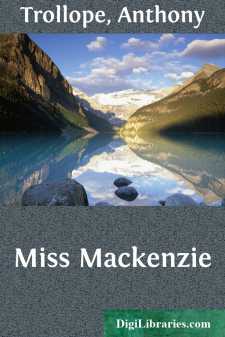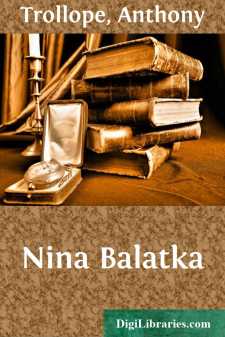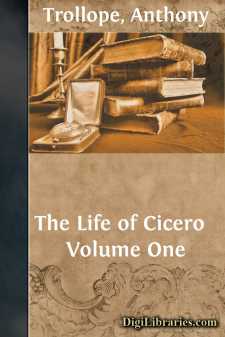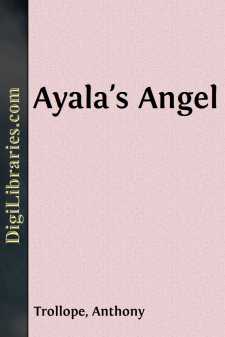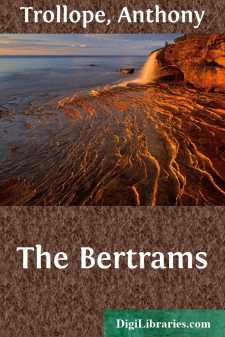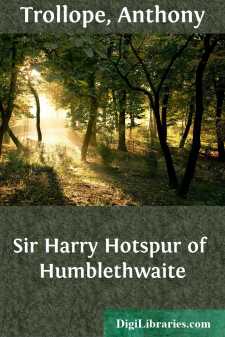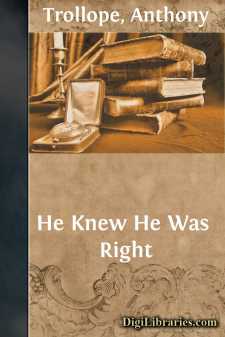Categories
- Antiques & Collectibles 13
- Architecture 36
- Art 48
- Bibles 22
- Biography & Autobiography 813
- Body, Mind & Spirit 142
- Business & Economics 28
- Children's Books 17
- Children's Fiction 14
- Computers 4
- Cooking 94
- Crafts & Hobbies 4
- Drama 346
- Education 46
- Family & Relationships 57
- Fiction 11829
- Games 19
- Gardening 17
- Health & Fitness 34
- History 1377
- House & Home 1
- Humor 147
- Juvenile Fiction 1873
- Juvenile Nonfiction 202
- Language Arts & Disciplines 88
- Law 16
- Literary Collections 686
- Literary Criticism 179
- Mathematics 13
- Medical 41
- Music 40
- Nature 179
- Non-Classifiable 1768
- Performing Arts 7
- Periodicals 1453
- Philosophy 64
- Photography 2
- Poetry 896
- Political Science 203
- Psychology 42
- Reference 154
- Religion 513
- Science 126
- Self-Help 84
- Social Science 81
- Sports & Recreation 34
- Study Aids 3
- Technology & Engineering 59
- Transportation 23
- Travel 463
- True Crime 29
Sort by:
by:
Anthony Trollope
The Mackenzie Family I fear I must trouble my reader with some few details as to the early life of Miss Mackenzie,—details which will be dull in the telling, but which shall be as short as I can make them. Her father, who had in early life come from Scotland to London, had spent all his days in the service of his country. He became a clerk in Somerset House at the age of sixteen, and was a clerk in...
more...
by:
Anthony Trollope
Uncle Indefer "I have a conscience, my dear, on this matter," said an old gentleman to a young lady, as the two were sitting in the breakfast parlour of a country house which looked down from the cliffs over the sea on the coast of Carmarthenshire. "And so have I, Uncle Indefer; and as my conscience is backed by my inclination, whereas yours is not—" "You think that I shall give...
more...
by:
Anthony Trollope
INTRODUCTION Anthony Trollope was an established novelist of great renown when Nina Balatka was published in 1866, twenty years after his first novel. Except for La Vendée, his third novel, set in France during the Revolution, all his previous works were set in England or Ireland and dealt with the upper levels of society: the nobility and the landed gentry (wealthy or impoverished), and a few...
more...
by:
Anthony Trollope
CHAPTER V. AUGUSTUS SCARBOROUGH. Harry Annesley, when he found himself in London, could not for a moment shake off that feeling of nervous anxiety as to the fate of Mountjoy Scarborough which had seized hold of him. In every newspaper which he took in his hand he looked first for the paragraph respecting the fate of the missing man, which the paper was sure to contain in one of its columns. It was...
more...
by:
Anthony Trollope
Chapter I. INTRODUCTION. I am conscious of a certain audacity in thus attempting to give a further life of Cicero which I feel I may probably fail in justifying by any new information; and on this account the enterprise, though it has been long considered, has been postponed, so that it may be left for those who come after me to burn or publish, as they may think proper; or, should it appear during my...
more...
by:
Anthony Trollope
Chapter I Hiram's Hospital The Rev. Septimus Harding was, a few years since, a beneficed clergyman residing in the cathedral town of ––––; let us call it Barchester. Were we to name Wells or Salisbury, Exeter, Hereford, or Gloucester, it might be presumed that something personal was intended; and as this tale will refer mainly to the cathedral dignitaries of the town in question, we are...
more...
by:
Anthony Trollope
CHAPTER I. THE TWO SISTERS. When Egbert Dormer died he left his two daughters utterly penniless upon the world, and it must be said of Egbert Dormer that nothing else could have been expected of him. The two girls were both pretty, but Lucy, who was twenty-one, was supposed to be simple and comparatively unattractive, whereas Ayala was credited,—as her somewhat romantic name might show,—with...
more...
by:
Anthony Trollope
CHAPTER I. VÆ VICTIS! This is undoubtedly the age of humanity—as far, at least, as England is concerned. A man who beats his wife is shocking to us, and a colonel who cannot manage his soldiers without having them beaten is nearly equally so. We are not very fond of hanging; and some of us go so far as to recoil under any circumstances from taking the blood of life. We perform our operations under...
more...
by:
Anthony Trollope
SIR HARRY HOTSPUR. Sir Harry Hotspur of Humblethwaite was a mighty person in Cumberland, and one who well understood of what nature were the duties, and of what sort the magnificence, which his position as a great English commoner required of him. He had twenty thousand a year derived from land. His forefathers had owned the same property in Cumberland for nearly four centuries, and an estate nearly...
more...
by:
Anthony Trollope
CHAPTER I. SHEWING HOW WRATH BEGAN. When Louis Trevelyan was twenty-four years old, he had all the world before him where to choose; and, among other things, he chose to go to the Mandarin Islands, and there fell in love with Emily Rowley, the daughter of Sir Marmaduke, the governor. Sir Marmaduke Rowley, at this period of his life, was a respectable middle-aged public servant, in good repute, who...
more...


